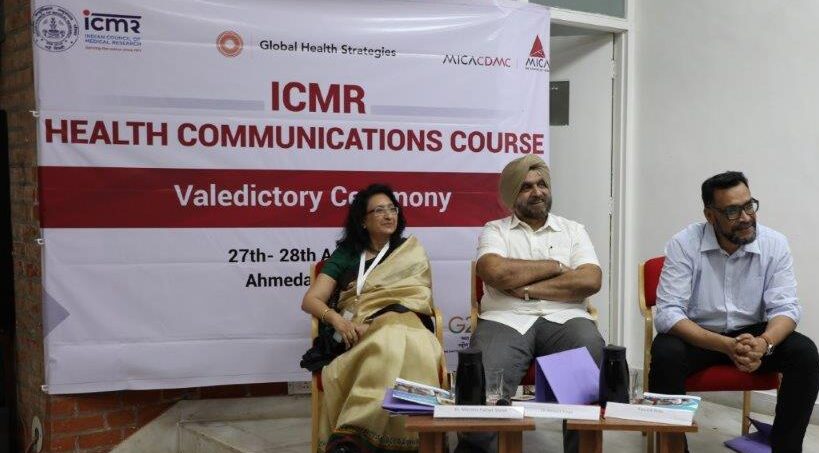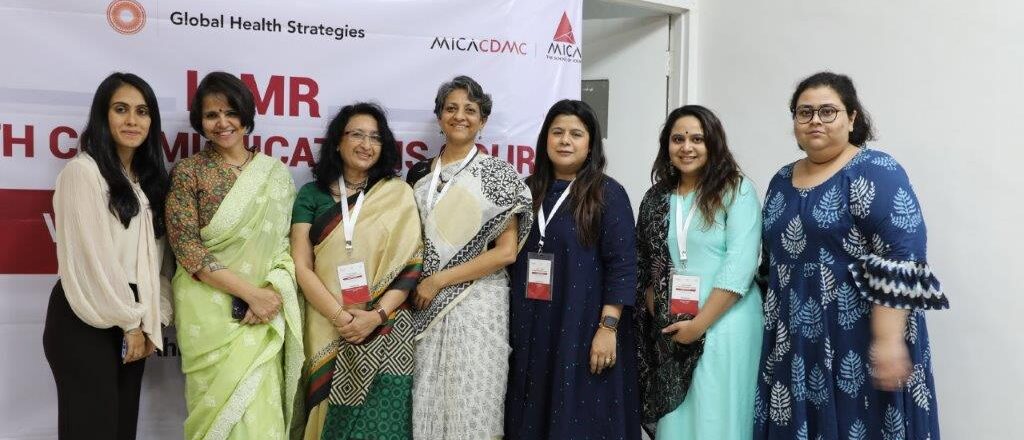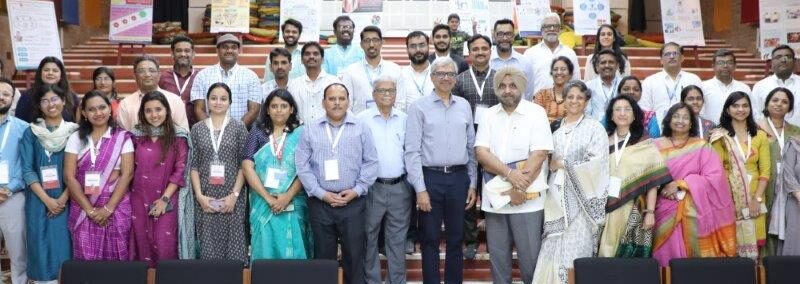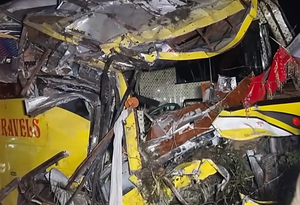MICA, ICMR & GHS equip India’s top health scientists with health communication skills
30 SELECTED SCIENTISTS FINISH THEIR TRAINING
MICA’s Centre for Development Management and Communication (CDMC) has custom-designed 15 modules on ‘Health Communication’ for the scientists of ICMR. In the first training phase, 30 selected scientists took the training. The modules addressed barrier analysis, identifying and using appropriate channels, charting out audience segmentation, community engagement, effective dissemination of communication, risk communication related to disease outbreak, etc
BILKULONLINE
Ahmedabad, May 1: MICA, Ahmedabad, India’s premier management B-school in Strategic Marketing and Communications, recently concluded the first phase of training senior scientists of the Indian Council for Medical Research (ICMR), considered one of the oldest and largest medical research bodies in the world, in collaboration with Global Health Strategies (GHS) on ‘Health Communication’. As part of a Memorandum of Understanding (MoU) signed between the Centre for Development Management and Communication (CDMC) at MICA, ICMR and GHS, the institute has custom-designed 15 modules on ‘Health Communication’ for the scientists of ICMR.

The first phase had 30 selected scientists take the training. Experts at CDMC-MICA designed the modules on public health communication after a careful need assessment. The modules addressed barrier analysis, identifying and using appropriate channels, charting out audience segmentation, community engagement, effective dissemination of communication, risk communication related to disease outbreak, etc. The training included global case studies, participatory exercises, and a capstone project.
Dr. Shailendra Raj Mehta, President & Director, MICA, said, “Healthcare is one of the most crucial sectors for any country. Considering the pandemic in the last three years, we see this as a strategic knowledge partnership and an opportunity to train the scientists on best practices to help them apply their learnings at their respective organizations.”
Speaking about the significance of health communications, Dr. Rajni Kant, Head, Policy and Communications Division, ICMR and Director, Regional Medical Research Center, Gorakhpur, said, “The COVID-19 pandemic revealed the significance of health communications in enabling people to take informed decisions around their health and well-being. With this course, we hope to build the capacity of India’s scientists and researchers in public health, so they can respond better to health crises in the future.”

Prof. Manisha Pathak Shelat, Co-Chair of CDMC, MICA, said, “In a way, the pandemic was as much a communication crisis as it was a health crisis. This partnership is precious as it brings together three important organizations to contribute to a larger cause. This partnership will reaffirm our commitment to public health systems in every way possible. Having a strong communication system in place would make a lot of difference in the present day and age to address with disease prevention as well as health crises.”
A total of 15 pre-recorded sessions were conducted in multi-media format so that the scientists can learn at their own pace. The program was offered in three levels – basic, intermediate, and advanced – hosted on ICMR’s website, Prof. Shelat added.
“The ICMR Health Communications Course is an important milestone in building the health communications ecosystem of ICMR, India’s apex body for biomedical research. This training program will certainly be instrumental in building the next generation of health communicators in the country, who will be able to apply their learnings to make evidence-based health research accessible for all”, added Mr. Kaushik Bose, Vice President, GHS.
Sharing her experience, Dr. Arya Rahul, Scientist B (Medical), ICMR Vector Control Research Centre, Puducherry, said, “Though we understand that the ultimate aim of scientific research is reaching out to the community, it is the first time that we received a structured learning on the way science should be communicated. The course was well-thought-out, and I hope we are on the way to a quantum leap in science communication.”
The institute recently held a valedictory ceremony on its campus to felicitate the scientists in the presence of the guests of honor Dr. Rajiv Bahl, Director General, ICMR; Dr. Amarjit Singh, Former State Health Commissioner of Gujarat; Dr. Dileep Mavalankar, Director, The Indian Institute of Public Health, Gandhinagar, and Sunil Raman from the Bill & Melinda Gates Foundation.
Dr. Singh said, “This training program addresses the need of the hour to build the capacity of India’s scientists and researchers in an essential domain of public health and will prove essential in building our resilience to health crises in the future.”



